第316章
But I assure you, he may write his worst, and he will never mortify me again.
My dear Huxley, yours gratefully, CHARLES DARWIN.
CHARLES DARWIN TO F. MULLER.
Haredene, Albury, August 2 [1871].
My dear Sir, Your last letter has interested me greatly; it is wonderfully rich in facts and original thoughts. First, let me say that I have been much pleased by what you say about my book. It has had a VERY LARGE sale; but I have been much abused for it, especially for the chapter on the moral sense; and most of my reviewers consider the book as a poor affair. God knows what its merits may really be; all that I know is that I did my best. With familiarity I think naturalists will accept sexual selection to a greater extent than they now seem inclined to do. I should very much like to publish your letter, but I do not see how it could be made intelligible, without numerous coloured illustrations, but I will consult Mr. Wallace on this head. I earnestly hope that you keep notes of all your letters, and that some day you will publish a book: 'Notes of a Naturalist in S.
Brazil,' or some such title. Wallace will hardly admit the possibility of sexual selection with Lepidoptera, and no doubt it is very improbable.
Therefore, I am very glad to hear of your cases (which I will quote in the next edition) of the two sets of Hesperiadae, which display their wings differently, according to which surface is coloured. I cannot believe that such display is accidental and purposeless...
No fact of your letter has interested me more than that about mimicry. It is a capital fact about the males pursuing the wrong females. You put the difficulty of the first steps in imitation in a most striking and CONVINCING manner. Your idea of sexual selection having aided protective imitation interests me greatly, for the same idea had occurred to me in quite different cases, viz. the dulness of all animals in the Galapagos Islands, Patagonia, etc., and in some other cases; but I was afraid even to hint at such an idea. Would you object to my giving some such sentence as follows: "F. Muller suspects that sexual selection may have come into play, in aid of protective imitation, in a very peculiar manner, which will appear extremely improbable to those who do not fully believe in sexual selection. It is that the appreciation of certain colour is developed in those species which frequently behold other species thus ornamented."Again let me thank you cordially for your most interesting letter...
CHARLES DARWIN TO E.B. TYLOR.
Down, [September 24, 1871].
My dear Sir, I hope that you will allow me to have the pleasure of telling you how greatly I have been interested by your 'Primitive Culture,' now that I have finished it. It seems to me a most profound work, which will be certain to have permanent value, and to be referred to for years to come. It is wonderful how you trace animism from the lower races up to the religious belief of the highest races. It will make me for the future look at religion--a belief in the soul, etc.--from a new point of view. How curious, also, are the survivals or rudiments of old customs...You will perhaps be surprised at my writing at so late a period, but I have had the book read aloud to me, and from much ill-health of late could only stand occasional short reads. The undertaking must have cost you gigantic labour. Nevertheless, I earnestly hope that you may be induced to treat morals in the same enlarged yet careful manner, as you have animism. Ifancy from the last chapter that you have thought of this. No man could do the work so well as you, and the subject assuredly is a most important and interesting one. You must now possess references which would guide you to a sound estimation of the morals of savages; and how writers like Wallace, Lubbock, etc., etc., do differ on this head. Forgive me for troubling you, and believe me, with much respect, Yours very sincerely, CH. DARWIN.
1872.
[At the beginning of the year the sixth edition of the 'Origin,' which had been begun in June, 1871, was nearly completed. The last sheet was revised on January 10, 1872, and the book was published in the course of the month.
This volume differs from the previous ones in appearance and size--it consists of 458 pages instead of 596 pages and is a few ounces lighter; it is printed on bad paper, in small type, and with the lines unpleasantly close together. It had, however, one advantage over previous editions, namely that it was issued at a lower price. It is to be regretted that this the final edition of the 'Origin' should have appeared in so unattractive a form; a form which has doubtless kept off many readers from the book.
The discussion suggested by the 'Genesis of Species' was perhaps the most important addition to the book. The objection that incipient structures cannot be of use was dealt with in some detail, because it seemed to the author that this was the point in Mr. Mivart's book which has struck most readers in England.
It is a striking proof of how wide and general had become the acceptance of his views that my father found it necessary to insert (sixth edition, page 424), the sentence: "As a record of a former state of things, I have retained in the foregoing paragraphs and also elsewhere, several sentences which imply that naturalists believe in the separate creation of each species; and I have been much censured for having thus expressed myself.